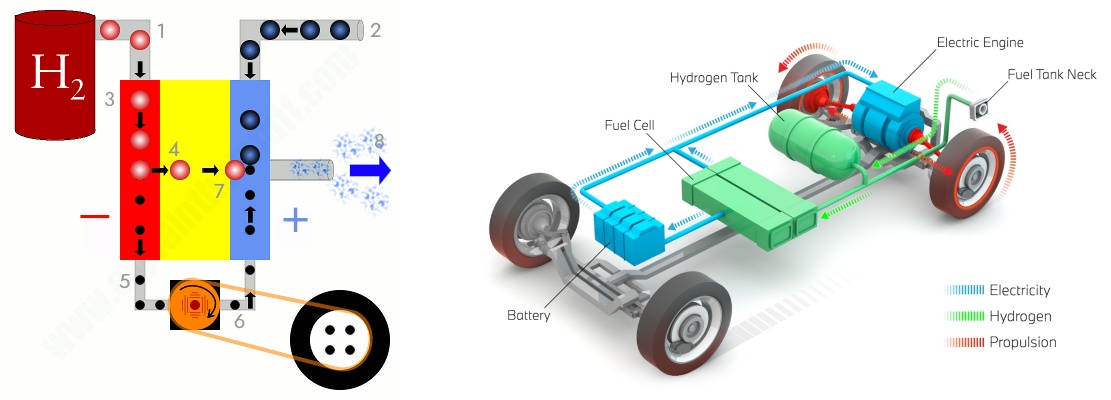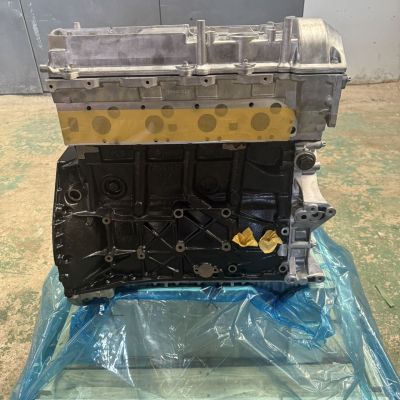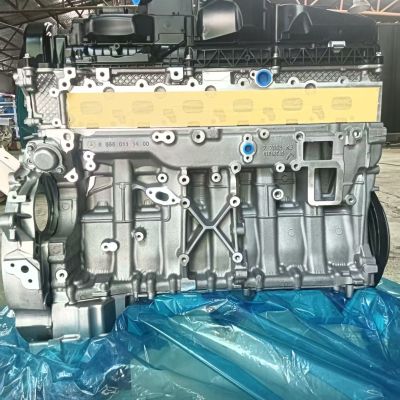Hydrogen Fuel Cell Engines: The Future of Automotive Power
Table of Contents
ToggleWhat is a Hydrogen Fuel Cell Engine?
A hydrogen fuel cell engine is an advanced type of powertrain that converts hydrogen gas (H₂) into electricity through an electrochemical process. Unlike conventional internal combustion engines (ICE) that burn fossil fuels to create mechanical power, a hydrogen fuel cell engine produces electricity directly by combining hydrogen and oxygen, with water vapor as the only byproduct. This makes hydrogen fuel cell technology one of the most promising alternatives for achieving sustainable mobility while significantly reducing harmful emissions.
Fuel cells consist of several fuel cell stacks, which are the heart of the engine. These stacks consist of electrochemical cells that produce electricity. The integration of fuel cell systems into modern vehicles is not only transforming the way cars are powered but also changing the future of automotive engine technologies.
How Does a Hydrogen Fuel Cell Engine Work?
Hydrogen fuel cell engines rely on the principles of electrochemical energy conversion. Here’s a more detailed look at how these engines operate:
-
Hydrogen Storage: Hydrogen gas is stored in highly pressurized tanks, typically designed to handle pressures of around 700 bar. These tanks are engineered with advanced materials to ensure safety and efficiency during storage and transportation.
-
Fuel Cell Stack: The hydrogen gas enters the fuel cell stack, where it reacts with oxygen from the air. At the anode side of the fuel cell, hydrogen molecules are split into protons (H⁺) and electrons (e⁻). The electrons travel through an external circuit, generating an electric current that powers the vehicle’s electric motor.
-
Electrochemical Reaction: The protons pass through an electrolyte membrane, while the electrons travel through the external circuit to the cathode. At the cathode, oxygen from the air combines with the protons to form water (H₂O), which is released as the only emission from the fuel cell. This is the key difference compared to internal combustion engines, which produce a variety of harmful gases like CO₂, NOx, and particulate matter.
This process makes hydrogen fuel cell engines extremely efficient and environmentally friendly, especially in comparison to traditional combustion engine systems. The electrical efficiency of fuel cells can exceed 60%, significantly outperforming the typical efficiency of gasoline or diesel engines, which ranges from 25% to 30%.

The Environmental Benefits of Hydrogen Fuel Cell Engines
The environmental benefits of hydrogen fuel cell engines cannot be overstated. As the global automotive industry faces increasing pressure to reduce emissions, hydrogen-powered vehicles are emerging as a cleaner, greener alternative.
Zero-Emission Technology
Hydrogen fuel cell vehicles (FCVs) are zero-emission vehicles, meaning they do not produce any pollutants or greenhouse gases during operation. This is a major advantage over traditional internal combustion engines, which release significant amounts of carbon dioxide (CO₂) and other pollutants into the atmosphere. With global concerns about climate change, hydrogen fuel cell engines provide a viable pathway for reducing the automotive industry’s carbon footprint.
Cleaner Air and Healthier Communities
The transition to hydrogen fuel cell engines also promises improved air quality. In urban areas, where traffic emissions are a major source of pollution, switching to hydrogen-powered vehicles could dramatically reduce harmful pollutants such as nitrogen oxides (NOx) and particulate matter. This would lead to cleaner air and better overall public health, especially in densely populated cities where respiratory diseases linked to air pollution are on the rise.

Hydrogen Fuel Cell Engine vs. Internal Combustion Engine: A Comparative Analysis
While both hydrogen fuel cell engines and traditional internal combustion engines (ICE) serve the same function of powering vehicles, their differences are striking in terms of energy efficiency, environmental impact, and operational mechanics. Let’s dive deeper into the comparison:
| Aspect | Hydrogen Fuel Cell Engine | Internal Combustion Engine |
|---|---|---|
| Fuel Type | Hydrogen gas (H₂) | Gasoline, diesel, or other fossil fuels |
| Energy Conversion | Electrochemical reaction (direct conversion of fuel to electricity) | Combustion (burning fuel to generate mechanical power) |
| Emissions | Water vapor (H₂O) | CO₂, NOx, particulate matter, hydrocarbons |
| Efficiency | High efficiency (60% or more) | Lower efficiency (25-30%) |
| Noise | Quiet operation | Noisy due to the combustion process |
| Fueling Infrastructure | Limited hydrogen refueling stations | Widespread fueling infrastructure for gasoline and diesel |
| Maintenance | Fewer moving parts, lower wear and tear | More moving parts, higher maintenance costs |
From the table, it’s clear that hydrogen fuel cell engines are superior in terms of environmental benefits and efficiency. However, challenges remain, such as the development of widespread hydrogen refueling stations and the high cost of producing hydrogen fuel cell systems.
Challenges Facing Hydrogen Fuel Cell Engines
While hydrogen fuel cell engines offer numerous benefits, several challenges must be addressed before they can be adopted on a large scale:
-
Hydrogen Production: Currently, a significant portion of hydrogen is produced using fossil fuels, particularly through natural gas reforming. This method, known as grey hydrogen, emits CO₂, negating some of the environmental benefits of hydrogen fuel cells. To make hydrogen truly green, we must increase the production of green hydrogen through electrolysis, a process that splits water into hydrogen and oxygen using renewable energy sources.
-
Hydrogen Storage and Distribution: Hydrogen is a low-density gas and needs to be stored at high pressures or in liquid form for transport and use in vehicles. Developing safe, cost-effective hydrogen storage systems and creating a network of refueling stations are critical challenges.
-
Cost: Fuel cell technology, including fuel cell stacks, catalysts (such as platinum), and hydrogen storage systems, remains expensive to produce. While costs are expected to decrease over time with economies of scale and advances in technology, hydrogen-powered vehicles are currently more expensive than their electric or internal combustion counterparts.
-
Durability and Reliability: The fuel cell stack and associated components must be highly durable to withstand the demands of automotive use. Manufacturers are working to improve the lifespan and reliability of these systems to ensure they match or exceed the durability of traditional combustion engines.

The Role of Engine Technology in the Hydrogen Revolution
As a supplier of high-quality automotive engines and components, we recognize the critical role that engine technology plays in the development of hydrogen fuel cell systems. Hydrogen fuel cell engines require advanced components, including:
- Fuel cell stacks: These are the core of any hydrogen-powered vehicle and require high-performance materials for efficient operation.
- Hydrogen storage systems: Safe and efficient storage tanks that can handle high-pressure hydrogen storage are key components of the overall system.
- Electric motors: These motors, powered by electricity generated from the hydrogen fuel cell, are critical for vehicle performance.
- Power electronics and control systems: These systems ensure that the energy produced by the fuel cell is properly converted and distributed to the electric motor.
Our expertise in engine technology positions us to provide high-performance solutions that contribute to the development of hydrogen-powered vehicles. Whether it’s components for fuel cell stacks, engine assemblies, or electric motors, our focus on innovation ensures we can support the transition to hydrogen-powered automotive solutions.
Industry Trends and Developments in Hydrogen Fuel Cell Engines
The global push toward zero-emission vehicles is spurring significant investment in hydrogen fuel cell technology. Several automotive giants, including BMW, Toyota, Hyundai, and Honda, are already exploring hydrogen-powered cars. BMW, for instance, is advancing its i Hydrogen NEXT project, aiming to introduce a hydrogen-powered SUV. Meanwhile, Toyota’s Mirai and Hyundai’s Nexo are among the leading hydrogen fuel cell vehicles currently available on the market.
In addition to automakers, companies involved in hydrogen production, storage solutions, and infrastructure development are essential for scaling hydrogen fuel cell adoption. Strong partnerships between these industries are key to overcoming challenges such as refueling station availability and cost reductions.

Conclusion
Hydrogen fuel cell engines represent a transformative shift in how vehicles are powered, offering an environmentally friendly alternative to internal combustion engines. With zero emissions, high efficiency, and reduced dependence on fossil fuels, hydrogen-powered vehicles significantly benefit the fight against climate change.
As the industry advances, the role of engine technology in optimizing hydrogen fuel cell systems will be pivotal. With ongoing research and development, we anticipate a future where hydrogen fuel cell engines become a mainstream solution for sustainable automotive power.
As a trusted supplier of high-performance automotive engines and components, we are committed to supporting the transition to hydrogen fuel cell technology. Our experience in developing engine assemblies, fuel cell systems, and electric motors ensures that we are well-positioned to be part of the hydrogen revolution.





1 Comments
Environmentally friendly: only water vapor is discharged, no harmful emissions, reducing air pollution.
High efficiency: high energy conversion efficiency, more fuel efficient than traditional fuel engines.
Long range: fast hydrogen refueling, long driving range, suitable for long-distance driving.
Lightweight: lighter than batteries, suitable for heavy vehicles such as trucks and buses.
Cold Resistance: Works well in low temperatures, unlike batteries that have poor range in cold weather.
Resourceful: Hydrogen can be produced from water and renewable energy sources and is not dependent on oil.
Fast refueling: refueling hydrogen takes only a few minutes and is as convenient as refueling.